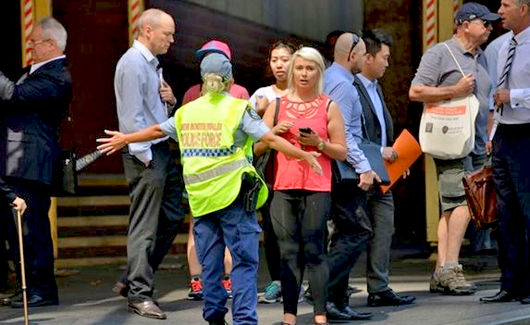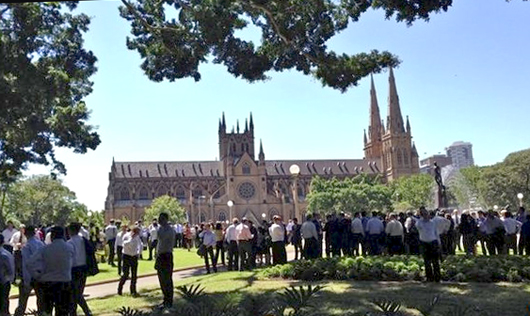
Canberra, Dec 15: Several people were today taken hostage at a popular cafe in Sydney apparently by at least one Islamic State gunman, media reports said.
At least three people could be seen with their arms in air and hands pressed against the window glass of the Lindt Chocolat Cafe in Martin Place, a busy tourist and shopping district in central Sydney, state-run ABC television reported.
An Islamic flag was also reportedly seen hanging in the window of the cafe. Witnesses claimed hearing loud bangs that sounded like gun shots, the TV channel reported.
Hundreds of armed police have sealed off Martin Place and urged people to avoid the area. Dozens of police cars are at the scene and one police officer has drawn his gun.
Major landmarks in the city such as the Sydney Opera House have been evacuated. Newsroom of Channel Seven, located opposite the cafe has also been cleared.
"We raced to the window and saw the shocking and chilling sight of people putting their hands up against the panes of glass at the cafe," the channel's producer, Patrick Byrne, was quoted as saying.
"This was just extraordinary. Then, as we were looking wondering what was going on, it seemed to be like an armed hold-up, more police arrived at Martin Place... The area was cleared. People were kept back," he said.
"It was then that gasps went through the newsroom as an ISIS flag was put up against one of the window panes," he added.







Comments
??????? ?? ?????. ????? ??? ???? ??????.
??? ??? ???????, ??? ???????? ?? ???? ???? ??????????? ???????????
?????????.
my web-site: ??????-?????.xn--p1ai: https://xn----7sbvehqfibu7aj.xn--p1ai/
Add new comment